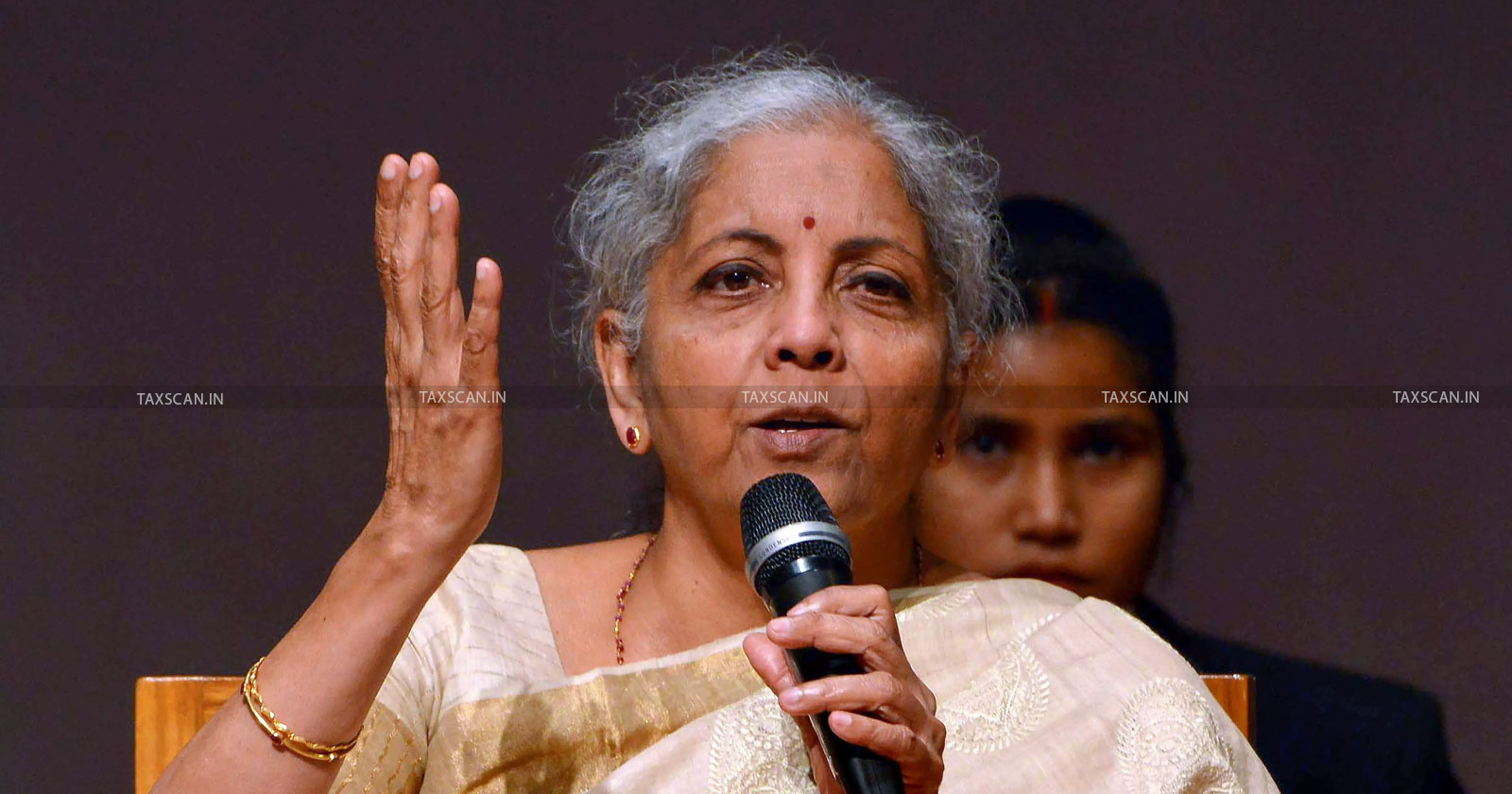Income Tax Act Revamp: Finance Ministry receives 6,500 Suggestions through Portal within 1 month, here’re the Suggestions we Received
“During the meeting, the Revenue Secretary also apprised FM that 6,500 valuable suggestions have been received through the portal since it was opened on 6 October 2024

Finance Minister – Income Tax Act – Income Tax Act Revamp – Taxscan
Finance Minister – Income Tax Act – Income Tax Act Revamp – Taxscan
The Finance Ministry has said that it received 6,500 suggestions through the income tax portant with regards to the revamp of income tax act. The ministry opened the portal for suggestions on October 6, 2024.
Union Minister for Finance and Corporate Affairs, Smt. Nirmala Sitharaman chaired a recent high-level meeting to discuss this comprehensive review, joined by key officials, including Sanjay Malhotra, Secretary of the Department of Revenue, Ravi Agarwal, Chairman of the Central Board of Direct Taxes ( CBDT ), and senior CBDT representatives.
Announced as part of the Union Budget 2024-25 on July 23, 2024, the revision of the act to simplify the income tax. The Revenue Secretary briefed the Finance Minister on the formation of 22 specialised sub-committees, each dedicated to scrutinising specific facets of the Act. These committees have been meeting regularly, both in person and virtually, engaging with domain experts to propose practical reforms.
The ‘X’ post of the Ministry of Finance Stated that “During the meeting, the Revenue Secretary also apprised FM Smt. @nsitharaman that 6,500 valuable suggestions have been received through the portal since it was opened on 6 October 2024, reflecting active public participation towards further simplification of the IT Act.”
Feedback from CAs and Tax Advocates on Income Tax Challenges and Suggestions
In the interest of public engagement, Taxscan has launched an opinion forum for sharing concerns and suggestions regarding the Income Tax Act. We received feedback that likely reflects the views of many tax professionals. These responses were collected in response to targeted questions prepared for identifying key areas for improvement.
Expert-Led PF & ESIC Course - Enroll Now & Get Certified
1. Challenges in Filing Income Tax Returns
- Portal Issues: Users report frequent technical glitches on the Income Tax portal, which slow down the filing process and cause unnecessary delays.
- Verification Process: Many find the OTP-based verification process cumbersome. It is suggested that once verified, an account should remain verified, allowing users to bypass OTP prompts each time, similar to bank validation or appointment processes.
- Frequent, Unannounced Changes: Sudden changes in tax provisions, such as the withdrawal of exemptions without adequate notice, have left taxpayers unprepared and impacted common taxpayers negatively.
- Unclear Instructions: Tax forms and instructions are criticised for their ambiguity. For example, ITR 5 does not clearly specify which entities should complete the balance sheet and profit and loss sections, which leads to confusion.
2. Suggestions on Deductions and Exemptions to Ease Tax Burden
- Reduce Tax Slabs Instead of Deductions: A common suggestion is to simplify the tax structure by reducing slabs rather than adding more exemptions. Conditional deductions complicate compliance, adding to the documentation burden for taxpayers.
- Revise Tax Slabs for Better Compliance: Some suggest increasing the tax-free limit to ₹7 lakhs, with gradual increases in tax rates for higher income brackets, which they believe could reduce unaccounted income and encourage transparency.
- Revised Deadlines and Penalties: The responses also suggest that income tax filing deadlines, especially for non-audited returns, be extended to March, allowing more time for accurate compliance. Penalties for late filing should be revised to avoid discriminating against taxpayers under different regimes.
3. Outdated Provisions in the Income Tax Act
- New Regime Adjustments: Some propose fully retaining Section 87 exemptions in the new tax regime to prevent disadvantages to taxpayers who choose this route.
- Simplify Complex Sections: Sections such as 73, 14A, and 80IA are seen as overly complicated, with calls for simplification to increase clarity and ease of compliance.
4. Simplifying Compliance Procedures
- Flexible Filing Dates: Many suggest removing rigid due dates for filing, instead incentivizing early filings with a small discount, which would motivate timely compliance without rigid deadlines.
- Simplified Tax Structure: Recommendations include setting straightforward tax rates beyond the ₹7 lakh threshold, eliminating capital gains tax, and reducing the rebate system to simplify the process and boost market liquidity.
Expert-Led PF & ESIC Course - Enroll Now & Get Certified
5. Additional Comments on Improving the Income Tax Act
- Simplify Tax Legislation: Tax professionals urge the government to avoid hypothetical or overly complex provisions, advocating for laws that align with natural business practices.
- Broader Tax Slabs: With increased costs of living, the individual tax slab limit should be raised, especially considering the extensive tax compliance costs like TDS and GST paid by end consumers.
- Equal Tax Treatment Across Sectors: Suggestions were made to discontinue income exemptions based on caste or occupation lines, such as agricultural income, which have been largely unproductive in addressing long-standing disparities.
These responses from Chartered Accountants and Tax Advocates reflect a strong demand for a simplified and more transparent Income Tax Act, aligning with the government’s current pursuit of reform. Public input is important, as the Act impacts the everyday taxpayer. As representatives of the common taxpayers, CAs and tax advocates have an important role to play.
Support our journalism by subscribing to Taxscan premium. Follow us on Telegram for quick updates


